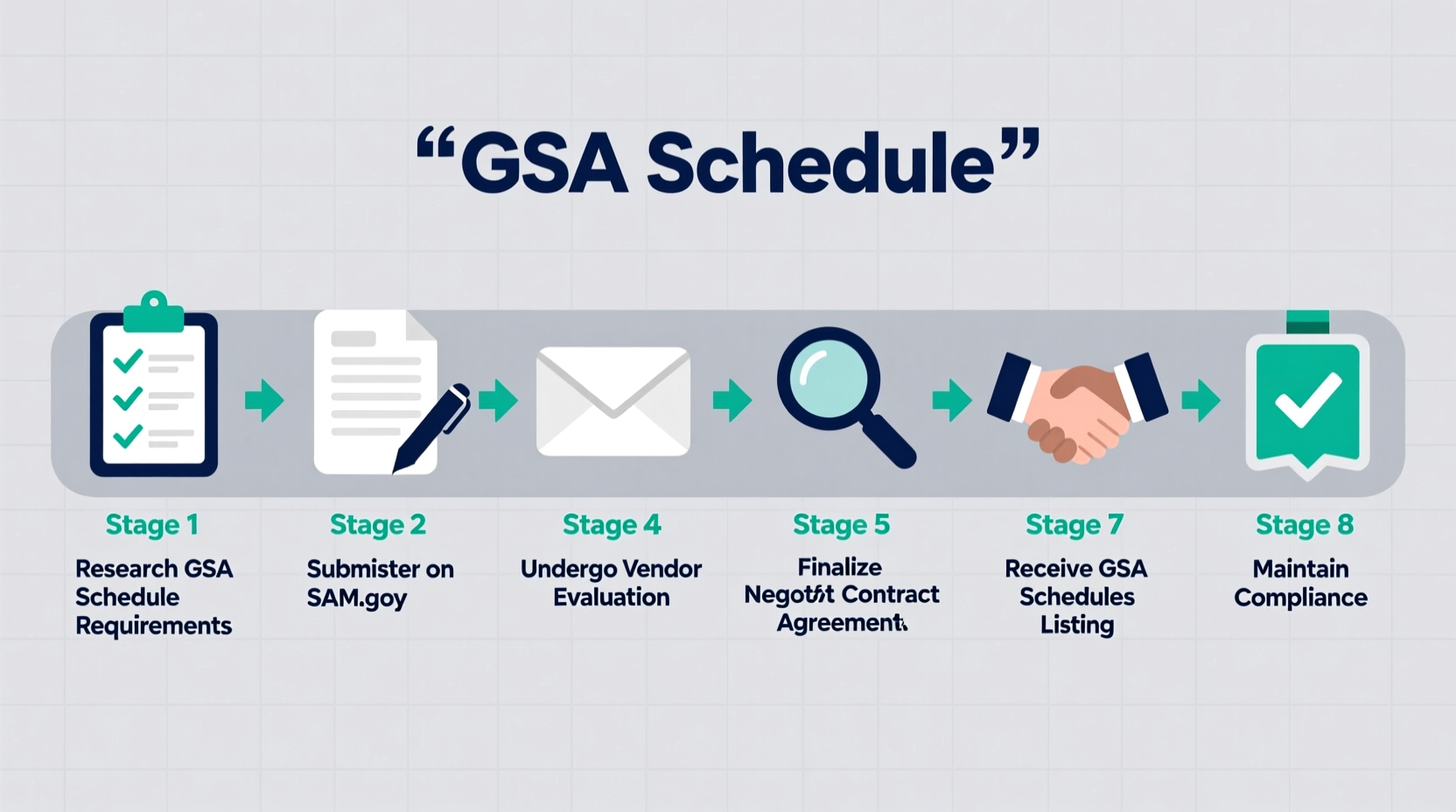Gaining a contract on the General Services Administration (GSA) Schedule is one of the most effective ways for businesses to access federal procurement opportunities. With over $70 billion in annual sales through GSA contracts, being awarded a spot opens doors to long-term government clients, credibility, and scalable revenue. However, the process is complex, highly competitive, and demands meticulous preparation. Understanding each phase—from eligibility to submission—can dramatically increase your chances of approval.
Understanding the GSA Schedule: What It Is and Why It Matters

The GSA Multiple Award Schedule (MAS) program allows pre-vetted vendors to sell products and services directly to federal, state, and local government agencies. Instead of going through lengthy individual bidding processes, agencies can quickly purchase from companies already under a GSA contract.
There are multiple GSA Schedules tailored to different industries, including IT (Schedule 70), Professional Services (Schedule 874), and Facilities Maintenance (Schedule 84). Each has specific requirements, but all follow a similar path to award.
“Being on the GSA Schedule isn’t just about selling to the government—it’s about validating your business as reliable, compliant, and capable.” — Linda Reyes, Federal Contracting Advisor, U.S. Small Business Administration
For small businesses, this is especially valuable. The GSA actively encourages participation from small, disadvantaged, veteran-owned, and women-owned businesses through set-asides and streamlined support programs.
Step-by-Step Process to Secure Your GSA Schedule Contract
Securing a GSA contract requires more than filling out forms. It’s a strategic effort that spans several months and involves financial, legal, and operational readiness. Follow this structured approach to maximize success.
- Determine Eligibility and Select the Right Schedule
Review the 12+ GSA Schedules and identify which best aligns with your core offerings. For example, tech firms typically apply under Schedule 70 (Information Technology), while construction or maintenance providers may qualify under Schedule 84. Ensure your NAICS codes match the schedule’s scope. - Prepare Your Business Infrastructure
GSA evaluates your company’s stability and compliance. You’ll need an active DUNS number (now transitioned to UEI via SAM.gov), a registered entity in SAM.gov, and up-to-date tax and financial records. Establish clear organizational charts, standard operating procedures, and pricing models. - Develop a Competitive Pricing Strategy
GSA expects fair and reasonable pricing based on commercial sales practices. You must provide at least three recent commercial customer references demonstrating similar sales. Avoid inflated list prices; instead, offer transparent discounting structures backed by data. - Compile Required Documentation
Gather key documents such as:- Federal Tax Identification Number (EIN)
- SAM.gov registration confirmation
- Commercial sales practice (CSP) narrative
- Financial statements (audited preferred)
- Resumes of key personnel (for service-based schedules)
- Past performance references
- Submit Your Proposal via eOffer System
Use the GSA eOffer platform to upload your proposal package. This includes your CSP, technical proposal, past performance, and pricing worksheets. Double-check formatting and file types before submission. - Negotiate Terms with GSA Procurement Team
Once submitted, a GSA contracting officer will review your application. Expect requests for clarification or negotiation on pricing, labor categories, or deliverables. Respond promptly and professionally. - Finalize and Sign the Contract
Upon approval, you’ll receive a five-year base contract with three optional renewal periods. Signing initiates your ability to market to government buyers using your SIN (Special Item Number).
Common Pitfalls and How to Avoid Them
Even experienced firms face rejection due to preventable errors. Below is a comparison of common mistakes versus best practices.
| Do’s | Don’ts |
|---|---|
| Provide detailed Commercial Sales Practices showing real-world pricing | Use hypothetical or inflated list prices without justification |
| Ensure all team member resumes match labor category requirements | Submit outdated or irrelevant resumes |
| Maintain consistent branding and professional formatting in submissions | Submit disorganized, poorly formatted documents |
| Respond to GSA inquiries within 48 hours | Delay responses or fail to address questions directly |
| Leverage GSA’s free outreach programs like 8(a) STARS or VETS-GS | Apply as a standard offer when you qualify for set-aside advantages |
Real Example: How a Mid-Sized IT Firm Won Their Schedule 70 Contract
NorthStar Technologies, a cybersecurity firm based in Denver, spent nearly nine months preparing for their GSA Schedule 70 application. Initially rejected due to weak commercial sales data, they restructured their approach.
They began tracking every B2B sale with documented contracts and client profiles. They hired a federal contracting consultant to refine their CSP narrative and align labor categories with GSA standards. After resubmitting with stronger evidence and revised pricing benchmarks, their proposal was accepted within 12 weeks.
Within six months of award, NorthStar secured two federal agency contracts totaling over $1.2 million in services. Their persistence in refining documentation paid off significantly.
Essential Checklist for GSA Schedule Applicants
Use this checklist to ensure you're fully prepared before submitting your application:
- ✅ Register in SAM.gov and obtain your Unique Entity Identifier (UEI)
- ✅ Confirm your business structure and tax compliance status
- ✅ Identify the correct GSA Schedule and SIN(s) for your offerings
- ✅ Collect at least three verifiable commercial sales references
- ✅ Prepare audited or reviewed financial statements
- ✅ Draft a clear Commercial Sales Practice (CSP) narrative
- ✅ Compile resumes for all proposed key personnel
- ✅ Format all documents according to GSA eOffer guidelines
- ✅ Submit through the eOffer portal before deadlines
- ✅ Designate a point of contact for GSA communications
Frequently Asked Questions
How long does it take to get awarded a GSA Schedule contract?
Typically between 6 to 12 months, depending on completeness of submission, responsiveness during negotiations, and GSA workload. Expedited reviews are possible for certain set-asides like 8(a) or VOSB programs.
Can a small business win a GSA contract without prior government experience?
Yes. While past performance helps, GSA accepts strong commercial track records as substitutes. Small businesses can also leverage mentor-protégé programs or team with prime contractors initially.
What happens after I’m awarded the contract?
You must activate your contract through GSA’s eLibrary, market your SINs to agencies, comply with reporting requirements (like the Industrial Funding Fee), and maintain ongoing recordkeeping. Failure to make a sale within the first year may trigger delinquency reviews.
Conclusion: Take Action and Position Your Business for Long-Term Growth
Securing a GSA Schedule contract is not a quick win—it’s a strategic investment in your company’s future. By approaching the process with discipline, accuracy, and a commitment to compliance, you position your business as a trusted partner to the federal government.
The rewards extend beyond immediate sales. A GSA contract enhances credibility, strengthens your brand, and often leads to partnerships in both public and private sectors. Whether you’re a startup aiming to break into federal markets or an established firm seeking diversification, now is the time to begin your journey.









 浙公网安备
33010002000092号
浙公网安备
33010002000092号 浙B2-20120091-4
浙B2-20120091-4
Comments
No comments yet. Why don't you start the discussion?